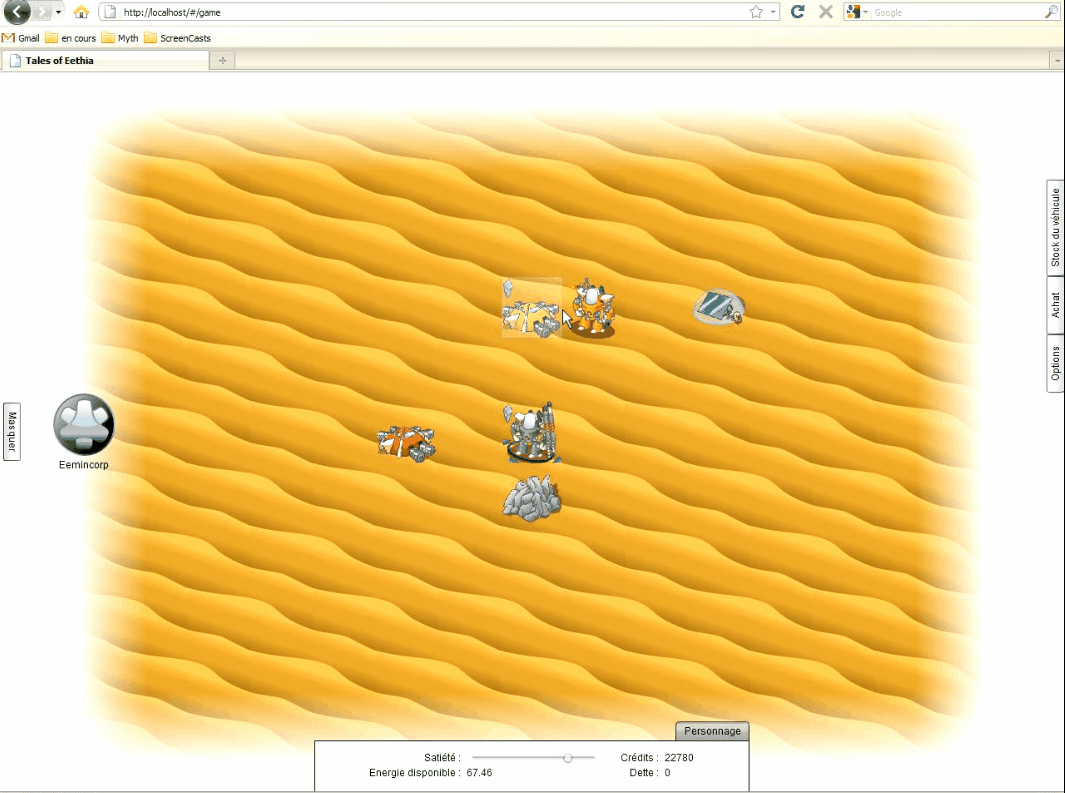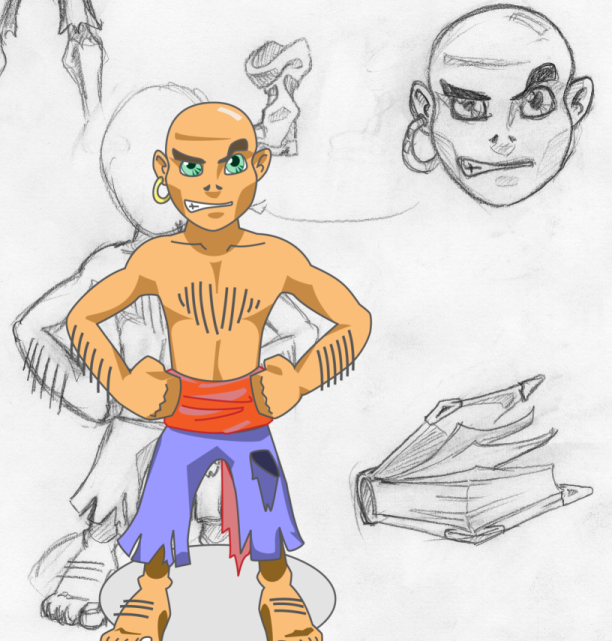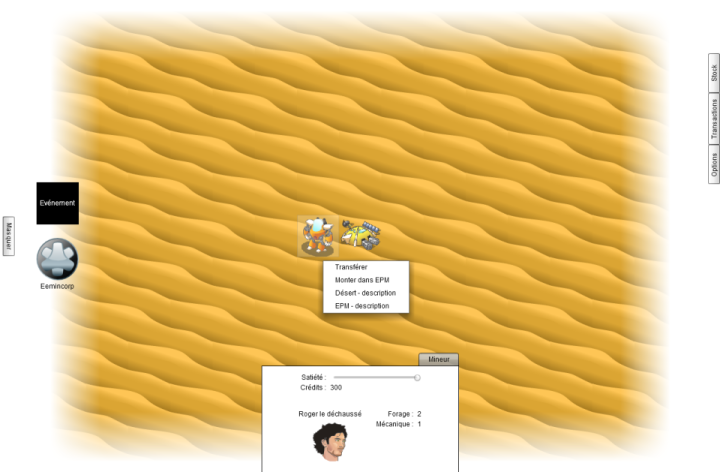- Game Engine
- Java
- Groovy
- AS3
- Hibernate
- Spring
- Flex
- Inkscape
An online service for game developers
Playing games is fun, but creating games is funniest. Playing with others make fun even greater. And playing from everywhere at anytime is a must have.
So the idea behind Mythic-forge was to create online multi-player games. But games that can evolve and grow, allowing players to invest time and effort on story telling.
Because developing such games is a long-running process, Mythic-forge comes as an online service itself.
It’s splitted in two:
- an web application for the game developer, for game authoring (Koios)
- an web application for players: the game itself (Atlas)
And powered by a REST API server (Chronos)
A major concern was to have something really agile: while the game developer enriches its game (maps, objects, characters, actions…), the game client has to reflect those changes. And a full rebuild and redeployment was not acceptable, so dynamic technologies was choosen to give Mythic-forge enough flexibility and dynamism.
Serious gaming
At this time (April, 2009), I was starting my career as lead developer at Atos Worldline, and I needed to improve my knowledge on Java Web Services.
This side-project was not only for having fun, it was a pretext to learn the just-born Java Spring ecosystem.
All this work was really valuable as it helped me to be more confident in my daily work, and to innovate a lot.
Functionnalities
This first version proposed from Game developer perspective:
- 2D maps, with fields definition, image uploads, and maps creation with drag’n drop
- Game object/characters classes, with position on maps, and illimited number of custom typed fields
- Character actions, with a rule engine, where rule has two methods: canExecute() and execute()
- Turned-based actions, with static rules
- JSON editor for game UI customization
- Moderation view, to track (and see) in realtime players behaviors
- Administration view, with server logs, realtime graph of connected players and mainteance switch
From player perspective:
- Character creation at first connection
- Map display
- A dynamic action menu on clic, and optional parameters input when required by selected rule
- Game event log
- Various panel to display static data (inventory, object characteristics…)
- A craft system to create various buildings and objects
- Chat with other players/admins
- A logbook player can write and share with others

Living addition of player inventory to game UI
Technologies inside
To reflect this various goals, the server side was realized in Java with Jetty web server, hosting a Spring 3 application (with Spring Security). The whole project is built and packaged as a Maven multi-modules project.
Data was stored in a MySQL database, accessed through Hibernate Object Relationnal Mapper, with full text search thanks to Hibernate Search (Lucene under the wood).
All the dynamic part (the rule engine) was powered by Groovy scripts.
And both web applications was AS3 Flex 4 applications, using GraniteDS to share whole objects graphs between server and applications. GraniteDS worked with Flash prorietary protocola AMF, at a time when WebSockets was not availables. Flex web applications were automatically tested with Selenium Flex.
All assets (maps, characters, UIs…) where crafted during the development in SVG with Inkscape.

Art works and SVG drawings
Tales of Eethia beta game
In November 2010, after one year and half development, a first playable game was available: Tales of Eethia.
It was a survival game, where the player was lost on a distant hostile planet (something like Frank Herbert’s Dune), and has to work for a mining company (Eemincorp) to survive.
We played during two months on an instance hosted at OVH, making the game evolved during the beta (adding exchange system and fights for example), while two dozens of players where participating.

Screenshots of Tales of Eethia Game UI
After this beta test, it appears that:
- The generic game web application was not flexible. Using a JSON customizable UI was far enought of an immersive UI for gamers.
- A slow rule engine. Any player click ends up to rules evaluation, with multiple (transactionnal) database access. Not enought reactive !
- Handwork game: numerous bugs on the game logic embedded in rules, due to the lack of automated testing.
An open road for the second version of Mythic-Forge !
Bitbucket repository
Mercurial sources can be found on Bitbucket.